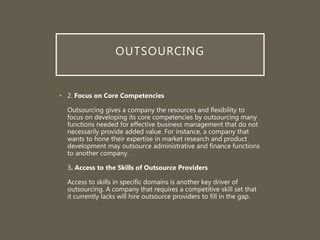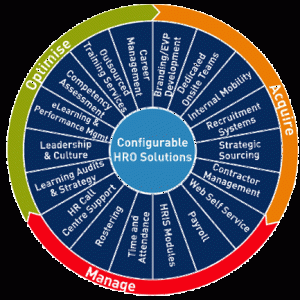
In today’s fast-paced and highly competitive tech industry, staying ahead of the curve is crucial for any business. As companies strive to innovate and bring new products and services to the market, managing all aspects of their IT infrastructure in-house might not be the most efficient option. This is where IT outsourcing comes into play – allowing businesses to offload certain non-core functions to specialized external providers while focusing on their core competencies.
The Benefits of IT Outsourcing
1. Streamlined Operations: By outsourcing IT tasks, companies can streamline their operations and enhance overall efficiency. By entrusting experts with specialized knowledge in areas such as software development, network management, or cybersecurity, businesses can tap into their expertise and gain a competitive edge.
2. Cost Savings: Building an in-house IT department involves a substantial investment in infrastructure, technology, and human resources. On the other hand, outsourcing allows companies to access top-tier IT services and talent without the heavy financial burden. It frees up capital for investment in core competencies and other strategic initiatives.
3. Focus on Core Competencies: IT outsourcing enables businesses to focus on their core competencies – the activities that differentiate them from their competition. Rather than spreading resources thinly over various IT functions, companies can redirect their energy towards improving their products, optimizing customer experiences, or exploring new business opportunities.
4. Flexibility and Scalability: The tech industry is often characterized by rapid changes and evolving demands. Outsourcing IT services provides businesses with the flexibility to scale their operations up or down quickly. As IT providers specialize in resource allocation and capacity planning, companies can adapt to market fluctuations more efficiently.
Choosing the Right Outsourcing Partner
When considering IT outsourcing, selecting the right partner is crucial. Here are some factors to consider:
1. Expertise and Experience: Look for an outsourcing provider with a proven track record and expertise in your specific niche. Evaluating case studies, client testimonials, and certifications can help gauge their level of knowledge and competence.
2. Security and Compliance: With growing cybersecurity risks, ensuring that the outsourced provider has robust security measures in place is paramount. They should meet industry-standard security protocols and comply with relevant regulations to safeguard your data.
3. Communication and Collaboration: Effective communication and collaboration are vital when working with an outsourcing partner. Ensure that the provider has a clear communication structure, responsive account managers, and a culture of transparent collaboration to maintain project alignment and progress tracking.
4. Scalability and Longevity: As your company grows, you need an outsourcing partner who can scale their services accordingly. Assess their ability to accommodate future needs and their longevity in the industry to ensure a stable and reliable partnership.
Conclusion
In the ever-evolving tech landscape, IT outsourcing offers numerous benefits for businesses looking to optimize their operations. By entrusting non-core IT functions to specialized providers, companies can streamline operations, reduce costs, and focus on their core competencies. However, selecting the right outsourcing partner is crucial. Choosing a provider with the right expertise, a strong focus on security and compliance, effective communication practices, and scalability is essential for a successful partnership. Embracing IT outsourcing can empower businesses to stay competitive, drive innovation, and achieve long-term success.


